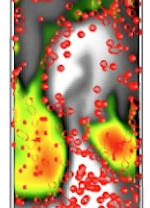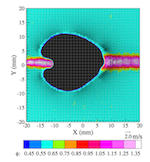Available Research Positions
Graduate Research Assistant
Already Admitted to Cornell's Ph.D. Program
Ph.D. students already admitted to Cornell should visit Prof. Perrine Pepiot in 256 Upson Hall.
Not Yet Admitted to Cornell's Ph.D. Program
Students usually join Prof. Pepiot's group every year. To be eligible to join, students must first be admitted into the Ph.D. program at Cornell University, typically in the graduate fields of Mechanical Engineering, Aerospace Engineering, or Sustainable Energy. Information on the Mechanical Engineering program can be found here. You will also find a list of frequently asked questions on this website. Note that the admission deadlines are typically in late December or early January for Fall admission, and that applications outside of the regular cycle are not considered for admission.
While interested candidates are welcome to contact Prof. Pepiot by email, note that an answer is unlikely due to the large number of sollicitations.
Masters and Undergraduate Students
Motivated students are encouraged to inquire about available projects. Current projects include, but are not limited to:

Biomass location and pyrolytic vapor concentrations during pyrolysis in a pseudo-2D fluidized bed reactor.
- Catalytic biomass pyrolysis vapor upgrading for biofuel production.
A promising way to produce transportation biofuels from biomass feedstock is by pyrolyzing biomass material (i.e. heating in the absence of oxygen) and refining the resulting bio-oil into a liquid with properties close to those of petroleum fuels. Catalysts offer the potential to speed up and improve the conversion process. This project will look at how catalysts particles interact with gas-phase products in a typical reactor using simulations. The student will be responsible for collecting literature data on commonly used catalysts, devise a simple gas-phase conversion model, and implement it in a CFD code.
- Flame propagation in a stratified environment. In direct injection gasoline engines, stratified combustion through
exhaust or internal gas recirculation has the potential to improve engine performances and reduce pollutant emissions. However, this
combustion mode is still not fully characterized, which limits its use in practice. The student will be responsible for running
simulations of stratified fuel/air mixtures using various combustion models, and post-process the results to identify the key features
of the ignition process, and relate them to the capabilities and characteristics of the different numerical models used.
- Burning behavior of biomass in a cone calorimeter
Cone calorimeters are used in Fire Safety Engineering to study the burning behavior of small samples of various solid materials. The student will be responsible for setting up one and two-dimensional simulations of cone calorimeters and evaluate the compositions of the resulting gases for various heating conditions.

